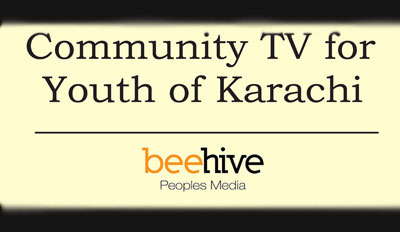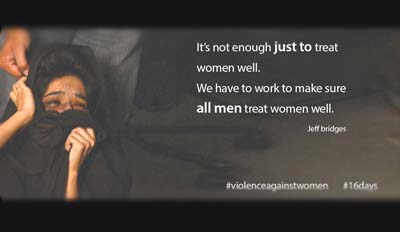Day 2
Day 2 at KhiLF was entertaining to say the least. With Shabnam, Yousufi, Tarar and Mushaira organized in the Main Garden, the area hardly got cleared for more than half an hour. Here are some of mental souvenirs we shall carry till the next KhiLF.
Ayesha Jalal commented that, "It's time for Pakistan to realize that the time to sit on your backs and wait for the Heavens to give you something is over." Framji Minwalla, fellow speaker at this panel added that, people here have given up and have actually stopped exercising their rights because they feel nothing's going to happen. Absence of critical thinking general populace is the major problem, remarked Jalal in return.
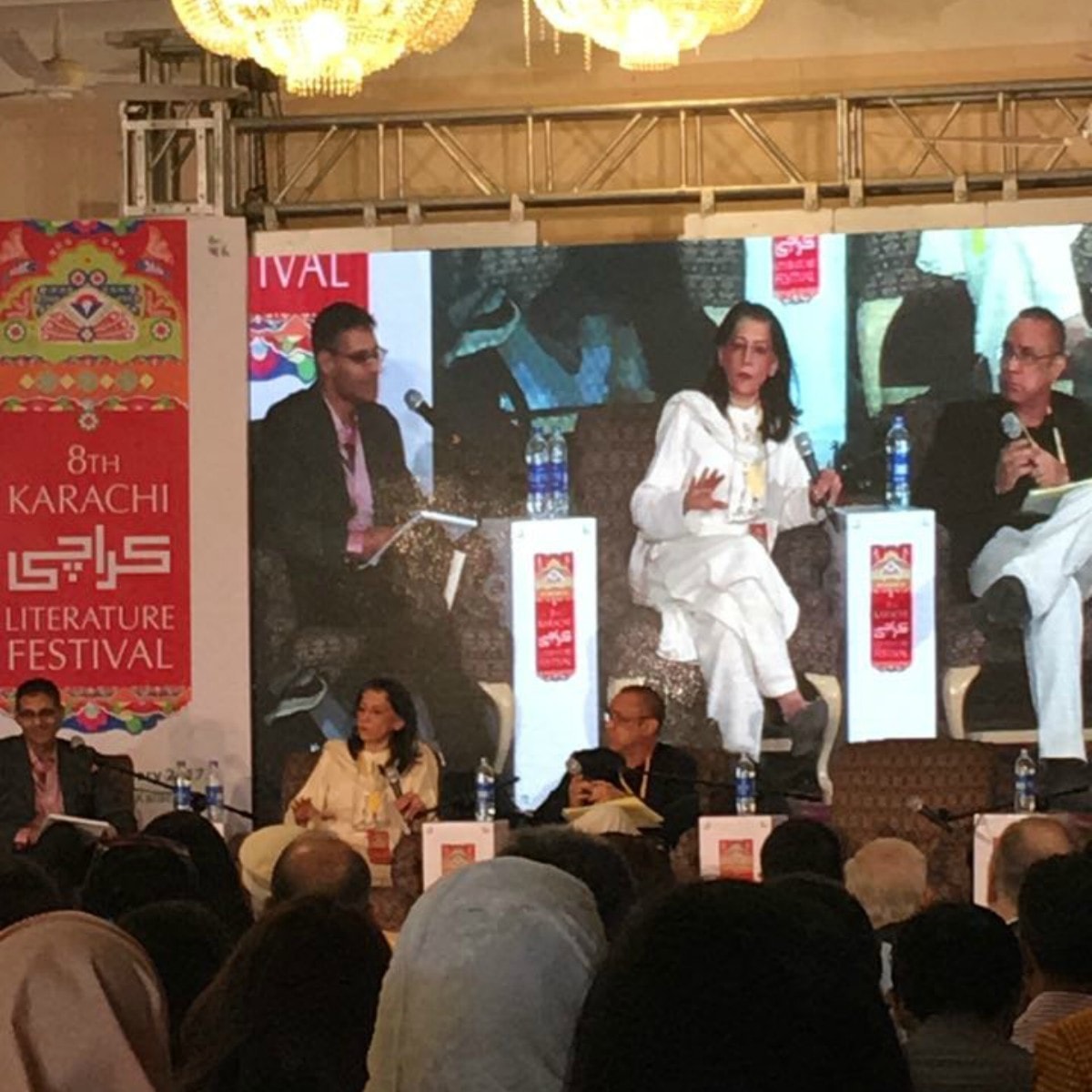
Most of the sessions this year had panelists reflecting on our societal discourse on important events in the past. The so-called history text books go on endlessly to paint a picture of marginalized Muslim minority in the British occupied sub-continent, but they shamelessly defend the mistreatment of its own minorities and the prejudiced policies introduced by military and politicians alike in the post independence times.
At Nayee Awazein, Rafaqat Hayat bemoaned the stunted literary growth of the society as a whole. Pakistani society has yet to evolve since it is still puerile about the use of bold words in written and oral discourse. There are too many taboos here, he said and this lack of maturity and aloofness can be found everywhere; like when things are satirized in English we find people accept and even praise it but once it is in Urdu, we either get radio silence or bleatings for censorship.
Ahmed Rashid, renowned journalist and an expert on Afghanistan, was a panelist at two sessions this day. Without sugar coating or fluffing the situation, he made excellent points. Stressing on the need of a coherent narrative against extremism he mentioned that we as citizens of this country should take note of the control state enjoys on foreign policy today. "As long as Pakistan uses extremist groups to project their foreign policy we're in trouble," he said.
As for Afghanistan, both the panelists stressed on Pakistan to realize that its peace and stability hinges on that of Afghanistan. And that we as a country need to work on ensuring that, not for anyone else but for our own secure and stable future.
Matthew A. Cook mentioned the presence of an invisible wall between India and Pakistan at the session "August Voices."
He said, "There are these connections that have been made invisible by history."
Sudheendra Kulkarni added, saying, "One of the major differences is that we have lost the proper understanding of history even closer to 1947, nobody wanted the kind of partition that happened, there was a demand for a Pakistan but even the top ideologues and thinkers or Pakistan were thinking of a different Pakistan. Just two months before the Lahore resolution 1940, Jinnah was still talking about India as a common land for Hindus and Muslim."
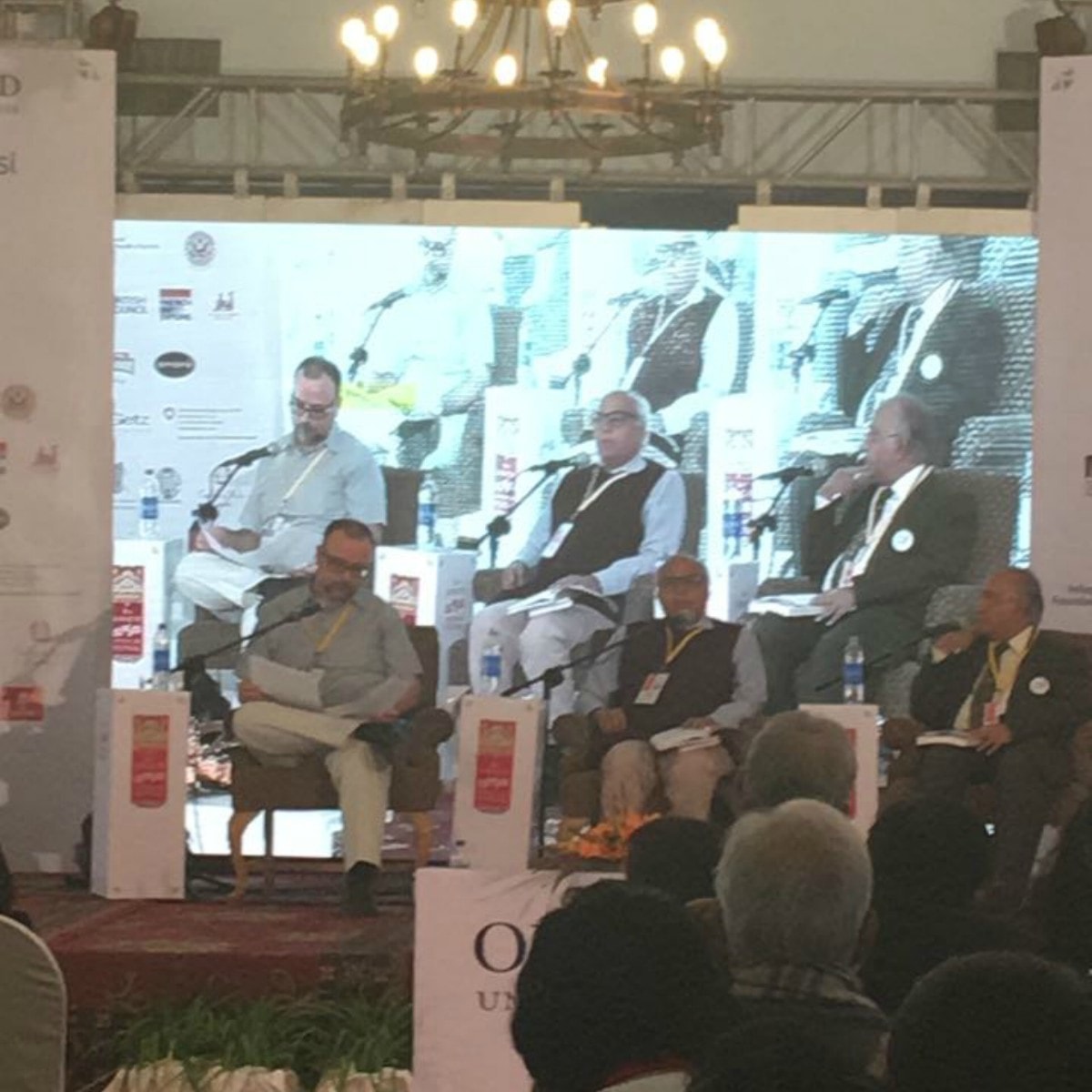
Shabnam arrived late but thanks to an epic and a very loud trip down the memory lane kept people rooted to their seats and for some just their spots where they stood in attendance.
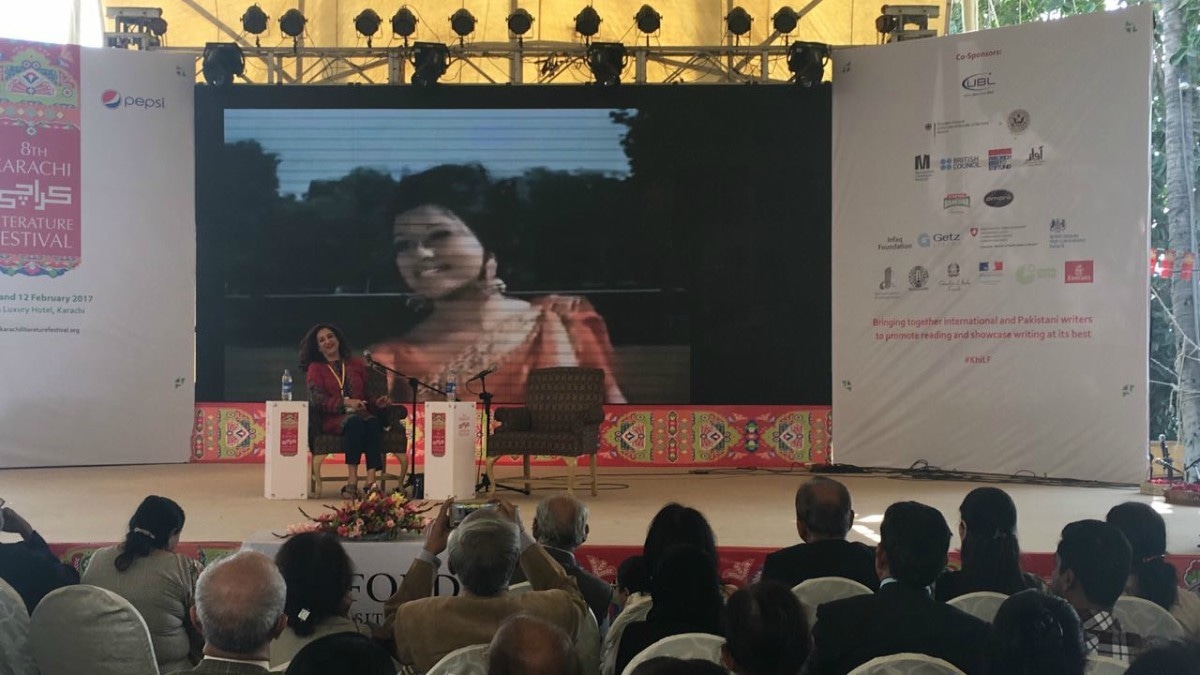
She was humbled at the welcome she received and expressed her willingness to work here again. A strong work ethic, grievances of life and her respect for her work came up in the discussion that just made her lovable all the more.
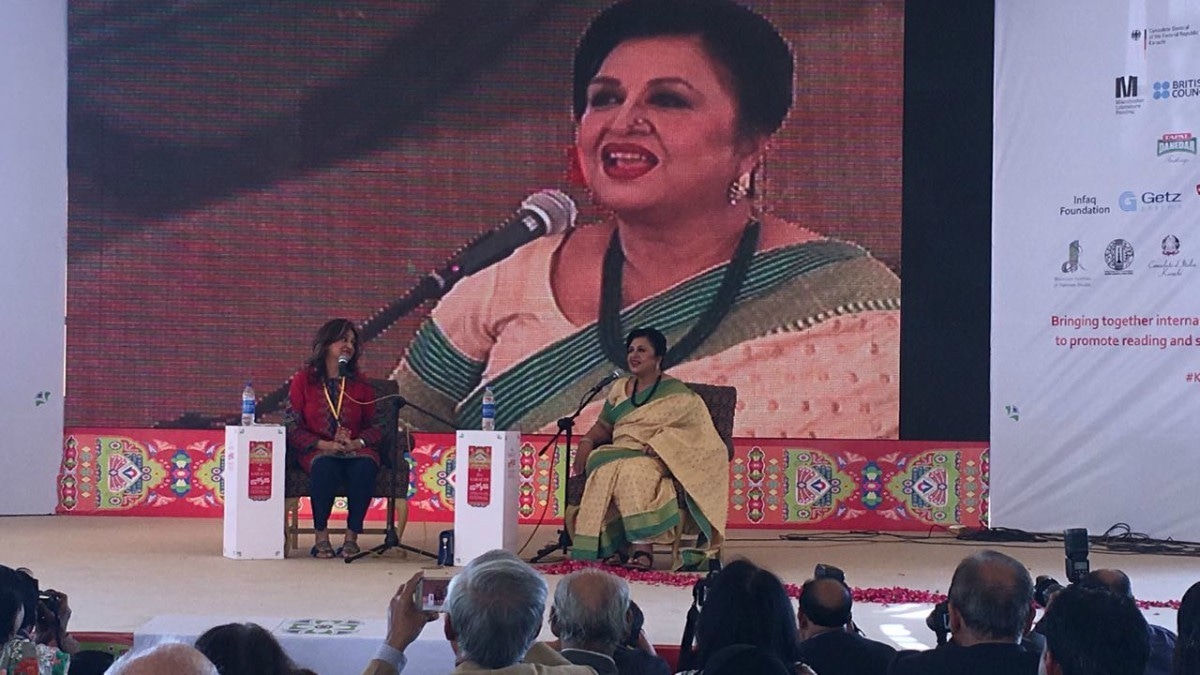
An audience member at Zara Hut Kay, could not resist praising the three unconventional hosts as role models. He said, "You all disagree but there's never an argument, there's a lot of tolerance among you all and that's how our society should be, more tolerant."
Bringing the concept of tolerance to speak about talk shows, Mubashir Zaidi said, "These talk shows now have talks like it's the end of the world and get worked up over nothing. There are problems everyone, every society deals with issues and there needs to be more tolerance which is why we try to include religious talks and sensitive topics on our talk show,"
Day 1
Karachi Literature Festival's first day kicked off with literature enthusiasts and gentry of the city socializing and sharing their thoughts and expectations with this year's Adabi Jashan.
At 5:40, Asif Sinan, classical singer and jazz guitarist, began the opening ceremony and had plenty swinging their heads and feet to his tune. Ameena Syed welcomed all and shared the theme of this year's festival that commemorates Pakistan's 70th anniversary.
The foreign attaches invited heartily congratulated the organizers. OUP Pakistan will be putting up a similar fair in London this May to bring forth Pakistan's literature and culture there. The Indian High Commissioner wished Pakistan well on its 70th anniversary but sadly he did not receive as warm a welcome. KhiLF was fondly called a peace festival by many present, but it will take a lot more than shallow commitments to ensure peace at large inside and outside the country.
Ayesha Jalal's key note speech had a refreshing tone that did not lull the audience into any false sense of cheerfulness. She congratulated Pakistan on surviving the odds which were very strongly placed since its inception but she did not shy away from pointing out the problem in Pakistani's of lack critical thinking. She congratulated Pakistan on its achievements in music and movies but did not lose focus from the battle Pakistan is indulged in right now for its soul.
Mustansar Hussain Tarar was a delight to listen to. His extension of congratulations also went beyond the jocundity of the festival for he remarked over the darkness of the times by mentioning the kidnapped bloggers and their lost plight before the general masses.
Skewered history was among the best moderated sessions of this year's festival. From the importance of oral history, to how essential it is for teachers to look beyond the marking schemes of exams, this session covered what we listened to from various Speakers at different sessions, and that is how important and fluid history is. Once we stop other-ing people around us and use history not as a tool that defines what we are not we as a society can most definitely make sense of our present and make it better for our future generations.
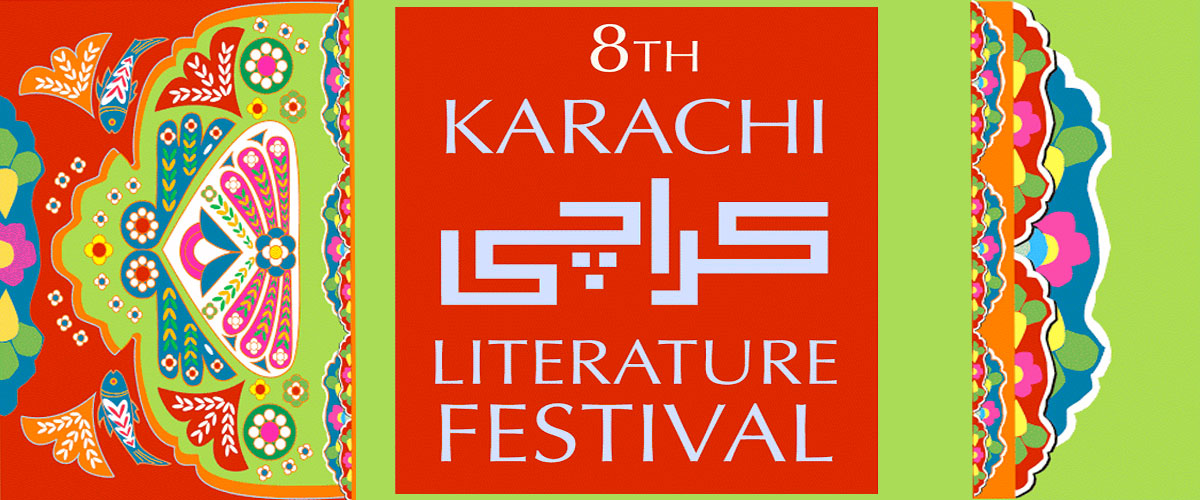
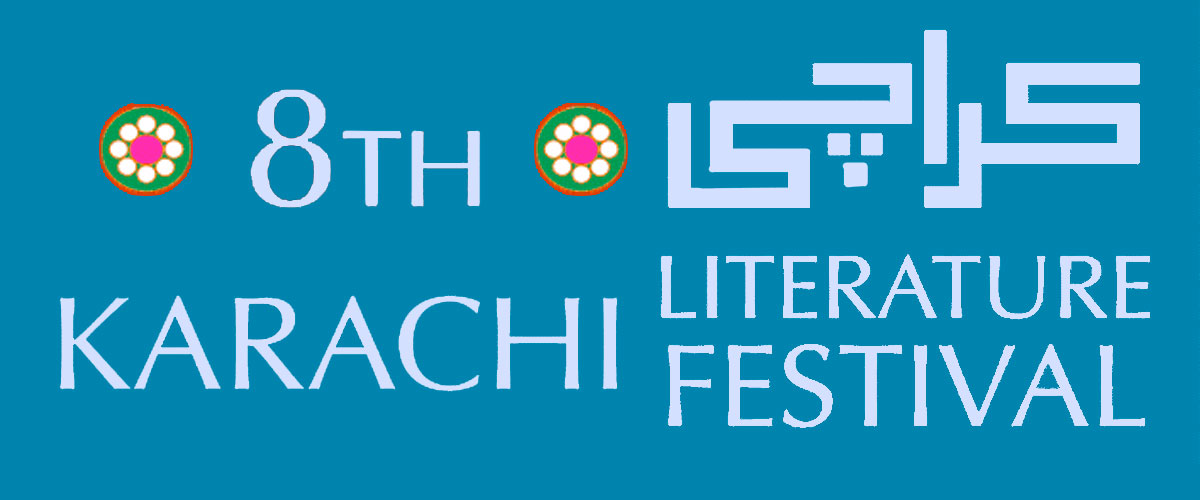





.jpg)


